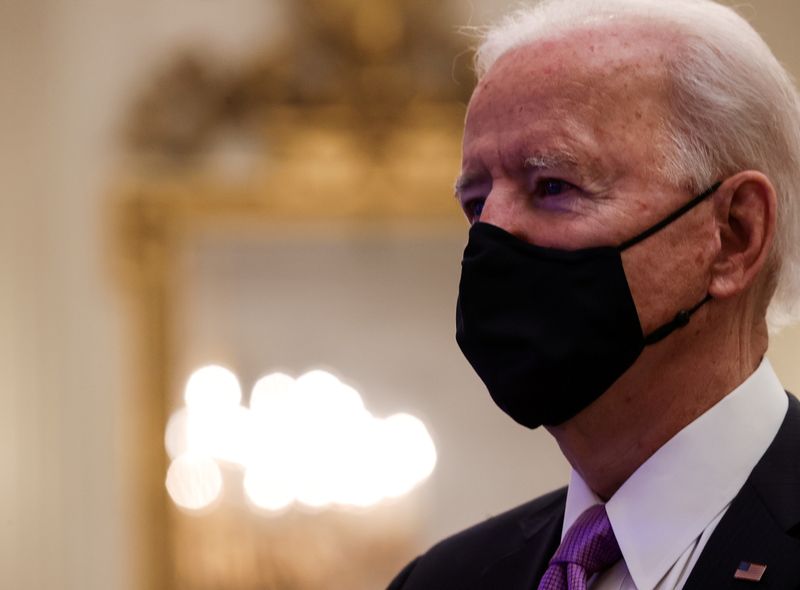By Nelson Acosta and Sarah Marsh
HAVANA (Reuters) - Cuba is hopeful U.S. President Joe Biden will swiftly reverse his predecessor's hardline approach toward the Communist-run island and resume the policy of detente begun by the Obama administration, a top official in Havana told Reuters.
Former President Donald Trump took more than 200 measures to reinforce the decades-old U.S. trade and travel embargo on Cuba, largely unraveling former President Barack Obama's historic 2014 move to thaw relations between the Cold War foes.
Trump's policy toward Cuba, which included a tightening of sanctions and limits on remittances and travel, plunged the island's struggling economy further into crisis and deepened the divide between families on either side of the Florida straits.
Biden, who was Obama's vice president, said during the 2020 presidential campaign that he would reverse policies on Cuba that "have inflicted harm on the Cuban people and done nothing to advance democracy and human rights."
Carlos Fernandez de Cossio, Cuba's top diplomat in charge of relations with the United States, said Biden's pledges suggested he wanted to restart where he and Obama left off.
"Everything could be rolled back in the short term if that were the government's will," he said in an interview with Reuters, reiterating Cuba's stance that it would not make political concessions in return for an easing of sanctions but was open to a mutually beneficial dialogue.
Fernandez de Cossio said it was positive that Biden's team included several people with experience interacting with Cuba and who would not be swayed by simplified narratives.
"This team has more experience than any other in the past 60 years," he said.
HOPES FOR VISAS
One of the top hopes of many Cubans is for the United States to reopen its consulate in Havana, which was closed after U.S. diplomats suffered a spate of unexplained illnesses, and to resume the pace of visa processing.
Angel Garbey, 28, applied for a U.S. visa two years ago but is among those still waiting for an appointment to collect it. U.S. visas for Cubans are being distributed in Guyana, and there are currently no flights between Cuba and Guyana due to the coronavirus pandemic.
"I haven't been able to meet my son," said Garbey, whose son was born in the United States five months ago. "It's tough."
Cubans working in the all-important tourism sector also hope Biden will expand U.S. travel to Cuba, which boomed during the Obama-era detente and fostered a fledgling private sector with bed-and-breakfast businesses and restaurants mushrooming across the island.
More remotely, there is the possibility Biden, whose Democratic Party now effectively controls both chambers of the U.S. Congress, could lift the embargo on Cuba, said Carlos Alzugaray, a former Cuban diplomat.
There are, however, a number of hurdles to a serious U.S.-Cuba rapprochement, including the unresolved matter of how the U.S. diplomats became ill in Havana, Cuba's continued support for Venezuelan socialist President Nicolas Maduro, Cuba's recent crackdown on domestic political opponents and political opposition in the United States, especially in Florida where many Cuban-American voters reside.
"There's a danger ... the Biden administration will fall back into the old habit of a piecemeal, quid pro quo approach in which the United States takes only limited steps and demands Cuban concessions on its internal politics," said William LeoGrande, a professor of government at American University. "That's a formula for paralysis."
